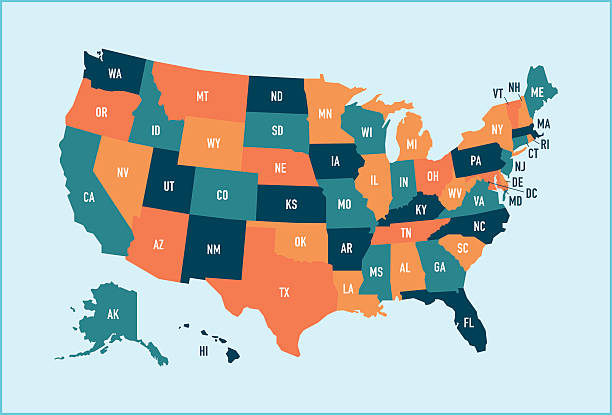In the United States, resale certificates are a common way for businesses to avoid paying sales tax on items that will be resold.
These certificates are provided by the purchaser to the seller, and they indicate that the purchaser intends to resell the items they are buying rather than using them for personal consumption.
However, not all states allow out-of-state resale certificates to be accepted. In this article, we will discuss 10 states that do not allow out-of-state resale certificates and what that means for businesses operating in those states.
What is a Resale Certificate?
Before diving into the list of states that do not allow out-of-state resale certificates, we need to discuss what a resale certificate is.
A resale certificate is a document that allows a business to purchase goods without paying sales tax on those items, on the condition that the items will be resold to customers. The certificate serves as proof that the business is exempt from paying sales tax on the purchase because they will be collecting sales tax from their own customers when the items are resold.
Resale certificates are generally issued by state tax authorities, and businesses must obtain a valid resale certificate from the state in which they operate in order to make tax-exempt purchases. The certificate typically includes the business’s name and address, as well as their state tax ID number.
It help to prevent double taxation by allowing businesses to purchase items for resale without paying sales tax, which they will later collect from their own customers when they make a sale. This system helps to ensure that sales tax is only collected once, at the point of sale to the end customer.
List of 10 States that Do Not Allow to Accept Out-of-State Resale Certificates
California
California is one of the most populous states in the country and is known for its strict tax laws. In California, out-of-state resale certificates are not accepted. This means that if a business based in California purchases goods from a supplier in another state, they cannot use a resale certificate to avoid paying sales tax. The California Board of Equalization requires that all resale certificates be issued by California businesses, and they must include a valid California resale number.
Related: How to Get a Resale Certificate in California
Florida
Florida is another state that does not allow out-of-state resale certificates. If a Florida-based business purchases goods from a supplier located outside of the state, they will need to pay sales tax on those items. The Florida Department of Revenue requires that all resale certificates be issued by Florida businesses and that they include a valid Florida sales tax number.
Indiana
In Indiana, out-of-state resale certificates are not accepted. Businesses operating in Indiana must have a valid Indiana sales tax number and must issue their own resale certificates. If a business purchases items from a supplier outside of Indiana, they will need to pay sales tax on those items.
Louisiana
Louisiana is known for its unique tax laws, and this includes its stance on out-of-state resale certificates. Businesses operating in Louisiana must have a valid Louisiana resale certificate, and they cannot use out-of-state resale certificates to avoid paying sales tax. The Louisiana Department of Revenue requires that all resale certificates be issued by Louisiana businesses and that they include a valid Louisiana resale number.
Maryland
Maryland is another state that does not allow out-of-state resale certificates. If a business based in Maryland purchases goods from a supplier located outside of the state, they will need to pay sales tax on those items. The Maryland Comptroller’s office requires that all resale certificates be issued by Maryland businesses and that they include a valid Maryland sales tax number.
Massachusetts
In Massachusetts, out-of-state resale certificates are not accepted. Businesses operating in Massachusetts must have a valid Massachusetts sales tax number and must issue their own resale certificates. If a business purchases items from a supplier outside of Massachusetts, they will need to pay sales tax on those items.
New Jersey
New Jersey is known for its high taxes, and this includes its stance on out-of-state resale certificates. Businesses operating in New Jersey must have a valid New Jersey resale certificate, and they cannot use out-of-state resale certificates to avoid paying sales tax. The New Jersey Division of Taxation requires that all resale certificates be issued by New Jersey businesses and that they include a valid New Jersey resale number.
Pennsylvania
Pennsylvania is another state that does not allow out-of-state resale certificates. If a business based in Pennsylvania purchases goods from a supplier located outside of the state, they will need to pay sales tax on those items. The Pennsylvania Department of Revenue requires that all resale certificates be issued by Pennsylvania businesses and that they include a valid Pennsylvania sales tax number.
Texas
In Texas, out-of-state resale certificates are not accepted. Businesses operating in Texas must have a valid Texas sales tax permit and must issue their own resale certificates. If a business purchases items from a supplier outside of Texas, they will need to pay sales tax on those items. The Texas Comptroller of Public Accounts requires that all resale certificates be issued by Texas businesses and that they include a valid Texas sales tax permit number.
Businesses operating in Texas must keep accurate records of all purchases made using resale certificates, as the Texas Comptroller of Public Accounts may conduct audits to ensure compliance with state tax laws.
Washington
In Washington, out-of-state resale certificates are not accepted. Businesses operating in Washington must have a valid Washington sales tax number and must issue their own resale certificates. If a business purchases items from a supplier outside of Washington, they will need to pay sales tax on those items. The Washington State Department of Revenue requires that all resale certificates be issued by Washington businesses and that they include a valid Washington sales tax number.
Implications for Businesses
For businesses operating in these 10 states, the inability to use out-of-state resale certificates can have significant financial implications. Without the ability to avoid paying sales tax on items intended for resale, businesses may need to adjust their pricing strategies to account for the added tax burden. This could make their products less competitive in the marketplace, potentially leading to decreased sales and revenue.
In addition, businesses operating in these states will need to ensure that they are in compliance with state tax laws. This means obtaining the necessary resale certificates from the state, ensuring that they are valid, and keeping accurate records of all purchases and sales. Failure to comply with state tax laws can result in fines and other penalties, which can further harm a business’s bottom line.
One potential solution for businesses operating in these states is to establish a physical presence in the state where they are purchasing goods. By doing so, they can obtain a valid resale certificate and avoid paying sales tax on items intended for resale. However, this can be a costly and time-consuming process, particularly for small businesses with limited resources.
Another option for businesses is to work with suppliers located within their state. This can eliminate the need for out-of-state resale certificates and simplify the purchasing process. However, this may limit a business’s ability to source products from a wider range of suppliers, potentially impacting the quality and diversity of their product offerings.
Conclusion
In conclusion, out-of-state resale certificates are not accepted in 10 states across the United States. For businesses operating in these states, this can have significant financial implications and require careful compliance with state tax laws.
While there are potential solutions to this issue, such as establishing a physical presence in the state or working with local suppliers, each approach comes with its own set of challenges and limitations. As such, businesses operating in these states will need to carefully consider their options and develop a strategy that works best for their unique needs and circumstances.



